Seven proposals from faculty teams were selected for funding in the 2023-24 academic year. These innovative programs will impact equity and will help the CSU reach its student success goals.
Equity-minded Reform in STEM Gateway Courses
Gateway courses are early courses in the major that students must pass to advance in their degree. On many campuses, including ours, gateway courses are synonymous with “weed-out” courses, or courses with significant DFW rates that lead students to leave the major and slow down progress to degree completion for the students that remain. This proposal aims to improve student outcomes in STEM gateway courses on our campus. We unite a team of biology, chemistry, physics, and math faculty to implement two equity-minded projects in gateway courses. First, we will implement equity-grading practices for at least eight STEM gateway courses. Second, we will reform our curriculum by removing a hidden prerequisite from our introductory chemistry sequence. Through these two initiatives, this project will boost students’ success in STEM while creating a culture of sharing best practices across STEM faculty.
Dr. Sonal Singhal | Principal Investigator
Associate Professor
Department of Biology
California State University, Dominguez Hills
Dr. Sonal Singhal is currently an Associate Professor in Biology at CSU Dominguez Hills. She came to CSUDH in Fall 2017 via Ohio, with numerous stops for schooling and training along the way. Her research uses genetics to reconstruct the evolutionary history of natural populations. Her teaching interests include genetics, ecology & evolution, and practical computing. She is also passionate about diversity in STEM education and collaborating with her university colleagues to develop initiatives that promote equitable student success. Outside of school, you can find her reading novels, trying to do a pull-up, and spending time with her family & pups.
San Francisco State School of Art Certificate in Art Handling
The SF State School of Art will pilot a twelve-unit Certificate in Art Handling to benefit students by providing training and mentorship toward this career path in the arts with an eye toward diversifying the field: Art Handling is dominated by white (77.5%) men (78.3)*. This mid-level career exists in a range of organizations, from major museums to small non-profits. The types of projects undertaken by art handlers include space planning, logistics, art installation, mount making, lighting, art packing & shipping, and art storage. There is no existing academic degree that makes one eligible for art handling jobs. In the Bay Area, art handler experience is often gained through unpaid internships (not economically viable for most SFSU students) or on the job. Positions are often secured through word-of-mouth and as a result, the field’s diversity has decreased slightly over the last 11 years*. The Certificate will prepare students to step into these careers based on their fine arts knowledge, skills, and training.
*Source:
https://www.zippia.com/art-preparator-jobs/demographics/
Victor De La Rosa | Principal Investigator
Director of the School of Art
San Francisco State University
A native Californian from the San Francisco Bay Area, De La Rosa has exhibited internationally throughout North America, Asia, and Europe, including the 3rd European Textile and Fibre Art Triennial in Riga, Latvia where he received a jury prize and was one of the only three U.S. artists selected to participate.
He also has exhibited at Decentered Gallery in Puebla, Mexico, Craft in America Center Los Angeles, Galeria de la Raza San Francisco, the Maloof Foundation Gallery and participated in the Border Art Biennial / Bienal Fronteriza de Arte, which was held concurrently in Mexico and in the U.S.
De La Rosa is also an author and commentator with articles appearing in Surface Design Journal and Fiberarts Magazine. He received an MFA from UC Davis and another at Rhode Island School of Design where he was a President’s Scholar and received honors including the Award of Excellence.

Kevin B. Chen | Co-principal Investigator
Lecturer Faculty in the School of Art
Curator at the Fine Arts Gallery
San Francisco State University
In addition to serving as faculty in the School of Art and curator at the Fine Arts Gallery at San Francisco State University, visual artist and curator Kevin B. Chen is currently a member of Recology’s Artist in Residence Program Advisory Board and Root Division’s Curatorial Committee. He previously served as co-chair for the City of Oakland's Public Art Advisory Committee, managed the de Young Museum’s Artist Residency Program, and taught at Stanford University, Mills College, and California College of the Arts. He has curated projects for Minnesota Street Project, Headlands Center for the Arts, San Francisco Art Institute, Yerba Buena Center for the Arts, San Francisco Arts Commission Galleries, University of Nevada Reno, San Jose Institute of Contemporary Art, and Chinese Culture Center of San Francisco & Kearny Street Workshop. He is represented by Jack Fischer Gallery in San Francisco, CA.
Transforming Student Experience and Success in Gateway STEM Courses: Anti-Racist Equity-Minded Teaching and Learning
Stan State is partnering with three CSU campuses (Humboldt, San José, Sonoma) to pilot/expand a yearlong Faculty Learning Community (FLC) on Teaching for Equity, Social Justice, and Anti-Racism (ESJAR) in STEM. Efforts to improve student outcomes in STEM courses have encouraged faculty to adopt evidence-based teaching practices such as active learning. However, research has shown that superficial adoption of evidence-based practices, without self-reflection of deeply held beliefs and biases around racism, social justice, and equity, can fail to address inequitable outcomes for URM students. This FLC intentionally integrates anti-racist equity-mindedness into the heart of redesign of gateway courses for STEM majors. The first semester of the FLC enhances faculty self-awareness, empathy, and understanding of ESJAR issues and humanizes STEM teaching and learning by developing their ability to integrate these issues into their course/curriculum through an equity-minded backwards course redesign. Through readings, discussions, and deep-reflection, participants examine issues of: identity, power, positionality; bias/microaggressions; structural/institutional racism, racialized trauma; cultural assets, anti-racist pedagogies; and experiences of BIPOC/URM students. Faculty will end the Fall semester with a redesigned curriculum to be implemented in the Spring. The second semester provides support for implementation of redesigned courses through guided reflection, observation, feedback, and assessment. Challenges for student learning are often rooted in the classroom and the climate created by the instructors. Our program is designed to help faculty create the classroom climate for student success through peer-supported partnership in implementing promising course redesigns and evaluating their impact on student learning outcomes.

Shradha Tibrewal | Principal Investigator
Director for the Faculty Center for Excellence in Teaching and Learning
Program Coordinator of the MSW Hybrid Program
California State University, Stanislaus
Shradha Tibrewal is the Director for the Faculty Center for Excellence in Teaching and Learning, the Program Coordinator of the MSW Hybrid Program and a faculty member in the MSW Program at CSU, Stanislaus. Over the course of her 20+ years social work practice and research career, she has worked on multiple projects focusing on issues of social justice with mostly oppressed populations. She has been instrumental in the launch of a Certificate in Inclusive Teaching along with the development and implementation of over 15 workshops and a critical conversation series focused on incorporating inclusive and equitable practices in the classroom and beyond at Stan State. She is deeply passionate about equity-minded and anti-racist education and advancing social justice rooted in mindfulness and compassion practices in her work with students and faculty.
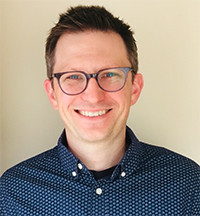
Matt Cover | Co-principal Investigator
Professor of Ecology
Department of Biological Sciences
California State University, Stanislaus
Matt Cover is a Professor of Ecology in the Department of Biological Sciences at Stanislaus State. He has contributed to a variety of programs that aim to transform the culture of STEM teaching and learning towards an equity-minded and justice-centered model, including the NSF HSI-funded Collaboration for Inclusive and Engaging Curriculum, Instruction, and Achievement (CIENCIA) faculty learning program at Stan State and the CA Learning Lab-funded Social Tools for Biology cross-institutional curriculum development program. As an educator, Dr. Cover's pedagogy and scholarship is driven by experiences working with and learning from students who are marginalized in multiple intersecting ways, and aligns with critical, liberatory, and trauma-informed pedagogies.
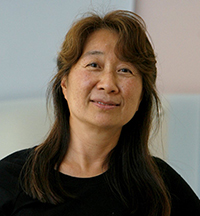
Janey Youngblom | Co-Principal Investigator
Professor of Genetics
Department of Biological Sciences
California State University, Stanislaus
Janey Youngblom is a Professor of Genetics in the Department of Biological Sciences at Stanislaus State. She is the Program Director for the Howard Hughes Medical Institute Inclusive Excellence3 grant (2022-2028) that will focus on innovative approaches to inclusive learning in introductory and gateway STEM courses. Janey was actively involved in the “Students Transitioning to Engaged and Motivated (STEM) Success” Project funded by the Department of Education, particularly in the early STEM experience for incoming freshman and transfer students through the summer STEM Discovery Academy. She has a Certificate in Effective College Instruction program offered through the Association of College and University Educators (ACUE) and the American Council on Education (ACE). She established the Masters Program in Genetic Counseling and served as its founding Associate Director and Research Coordinator. Janey understands the critical role that building relationships with students can have on their academic success trajectory and values the opportunity to foster more meaningful relationships throughout the academic community.
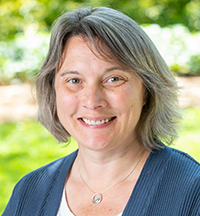
Amy Sprowles | Co-Principal Investigator
Faculty Associate Dean of Undergraduate and Graduate Programs
Associate Professor of Biological Sciences
California State Polytechnic University Humboldt
Amy Sprowles, PhD is an Associate Professor of Biological Sciences at Cal Poly Humboldt and currently serves as Faculty Associate Dean of Undergraduate and Graduate Programs. She has developed and administered multiple programs to support students along their education pathway, including the Humboldt CIRM Bridges Program, the Humboldt HHMI Inclusive Excellence Program, the Humboldt HSI STEM program and the Humboldt Transcending Barriers Project funded by the Keck Foundation and NSF. She is a member of the CSUPERB Faculty Consensus group and serves as a SENCER Ambassador. She is a proud recipient of the CSU Faculty Innovation and Leadership Award (2020/2021) for her role launching Humboldt's Place-based Learning Communities for first year students. Amy acknowledges her positionality is a consequence of the power and privilege society affords her and works to bring equity to her professional and personal life.
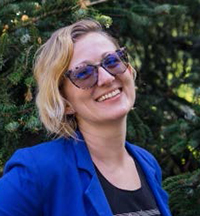
jen johnson | Co-Principal Investigator
Associate Professor and Coordinator of English/English Education
Sonoma State University
jen johnson, PhD, is an associate professor and coordinator of English/English education and the Faculty Fellow for University Studies and Transition Programs at Sonoma State University. Their teaching and research is dedicated to leveraging culturally-sustaining-responsive and antiracist pedagogies, new literacies, and Hip-Hop culture, to cultivate literacies of access and liberation. As part of this work, jen has co-directed the San José Area Writing Project, founded the Education for Liberation conference, and directed and coached Hip-Hop debate around the country for over a decade.
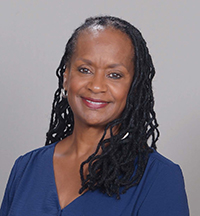
Sharon Fuller | Co-principal Investigator
Lecturer and Faculty Fellow
Department of Geography, Environment, and Planning
Sonoma State University
Dr. Sharon Fuller has a doctorate in Environmental Science, Policy, and Management from the University of California Berkeley and a Master of Science in Education, with an emphasis in Curriculum and Instruction, from California State University Hayward. She is a lecturer in the Geography, Environment, and Planning department and the Faculty Fellow for Antiracist Curriculum at Sonoma State University. Dr. Fuller’s research focuses on indigenous women’s cultural practices in coastal small-scale fisheries. She teaches courses on social geography, environmental policy, and sustainability and works with faculty to develop curricula and pedagogy that honor the social realities and experiences of students from racially and ethnically diverse backgrounds. She has also directed initiatives to improve the recruitment and retention of underrepresented faculty.
EMBRACE: Education in Molecular Biology, Representation, And Cultural Equity
Equity gaps in the understanding of the fundamentals of cellular and molecular biology exist among our students. Similar gaps persist or even widen in more advanced subjects in the same area, suggesting potential carryover effects. Our project aims at closing these equity gaps by setting up a repository of content made available to students and their near-peers (i.e., learning assistants, LAs). We expect that the repository of content will increase the efficacy of LAs in promoting student learning and closing equity gaps. The benefits of the repository will be assessed by our team by comparing sections with LAs and access to the repository, sections with LAs but no repository, and sections with neither LAs nor repository. The efficacy of our intervention will be evaluated through questionnaires to assess the students’ disciplinary identity and identify the instructional methods credited as most helpful. The results are scalable to the Cal State system and will be shared through a training workshop and talks by the members of our team.
Andrea Bonisoli-Alquati | Principal Investigator
Associate Professor
Department of Biological Sciences
California Polytechnic State University, Pomona
Dr. Andrea Bonisoli-Alquati received his Bachelor of Science in Natural Sciences and his Master of Science in Ecology from the University of Milan, in Milan, Italy. He received his PhD in Ecology also from the University of Milan. He held positions as a postdoctoral research associate at the University of South Carolina and at Louisiana State University, before establishing his lab at Cal Poly Pomona, where he teaches courses in introductory biology, environmental toxicology, statistics, and ornithology. He is the author or co-author of 50 peer-reviewed publications on various themes in environmental toxicology, ecology, and evolutionary biology. The Bonisoli-Alquati lab conducts research on the distribution of several legacy and emerging pollutants, and their physiological, genetic, and behavioral effects on wild populations of birds.
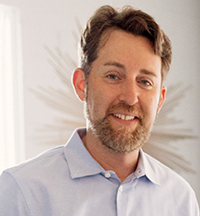
Andrew Steele| Co-principal Investigator
Professor
Department of Biological Sciences
California Polytechnic State University, Pomona
Dr. Andrew Steele received his AB in biology from the University of Chicago. He received his PhD, also in biology, from the Massachusetts Institute of Technology. Subsequently, he was a non-tenure track faculty member at the California Institute of Technology as part of the Broad Fellows in Brain Circuitry Program. He taught as a visiting professor at Occidental College and at the Keck Science Department of Claremont-McKenna, Pitzer, and Scripps colleges before obtaining a tenure-track position at Cal Poly Pomona in 2013. He teaches courses in physiology, neuroscience, cell, and molecular biology. The Steele lab researches neural mechanisms of diet-induced obesity, circadian rhythms associated with feeding, and collaborates with the CLOVER center at Caltech to characterize and distribute engineered adeno-associated viruses for gene therapy applications.
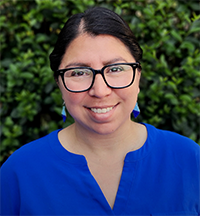
Janel Ortiz | Co-principal Investigator
Assistant Professor
Center for Excellence in Mathematics and Science Teaching (CEMaST)
California Polytechnic State University, Pomona
Dr. Janel Ortiz (she/her) is a first-gen Latina originally from La Puente, California. She received her Bachelor of Science in Animal Science from University of California, Davis. She earned her Master of Science degree in Biology at California State University, Los Angeles where she studied the behavior of urban tree squirrels and continued on to earn her Ph.D. in Wildlife Science from Texas A&M University-Kingsville where her research focused on developing curriculum on wild birds for grades K-12 and bird-habitat relationships. She completed a postdoc at the University of San Diego focusing her work on biology education and the ecology of urban parrots. Currently, Dr. Ortiz is an Assistant Professor in CEMaST at Cal Poly Pomona and teaches courses in the Department of Biological Sciences. Her research interests include urban wildlife and conservation education.
Pilot Recitation Program for Anatomy and Physiology
Anatomy and Physiology (A&P) are fundamental bases for most Kinesiology and Allied Health programs offered in the USA. In our department, they are required core courses for all majors. Furthermore, they are a prerequisite for another required core course, Exercise Physiology, as well as a required course for Biology majors. Our A&P classes have seen DFW grade rates skyrocket from 10-20% in 2019 to 40-50% in Fall 2022, with DFW rates not declining but peaking since the return to fully in-person learning in the last year. This creates a major threat to the Graduation Initiative 2025 goals. Additionally, we see achievement gaps among Pell Grant recipients, first generation to higher education students, and to the greatest extent, underrepresented minority students. Therefore, targeting the A&P class not only addresses the Graduation Initiative 2025 goals, but could help close equity gaps in a course with historical disparities in achievement. Many large universities offer recitations for their A&P classes, and we want to adopt this practice and empirically test if it would be a good use of department resources long term. We hypothesize that adding a recitation to our A&P courses will significantly decrease DFW rates in the course as well as improve equity in learning.
Eric Martin | Principal Investigator
Associate Professor
Department of Kinesiology
California State University Monterey Bay
Dr. Eric Martin is an Associate Professor in the Kinesiology Department at California State University Monterey Bay. He received his B.A. and M.A. in Exercise & Sport Science in his home state from the University of North Carolina at Chapel Hill, then won an Endeavor International Postgraduate Research Scholarship from the Australian Government to support his PhD at the University of Notre Dame Australia. During all his graduate work, he designed and managed exercise and counseling programs as research interventions to provide supportive care to breast and prostate cancer survivors. Currently, his research interests are in early screening and identification of health risks among college students, focusing on racial health disparities, performance and injury prevention in rugby and pickleball players, and information literacy scholarship.
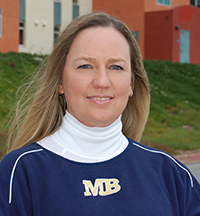
Trish Seven | Co-principal Investigator
Professor
Department of Kinesiology
California State University Monterey Bay
Dr. Tirsh Sevene is a Professor in the Kinesiology Department at California State University Monterey Bay. Dr. Sevene received a PhD in Biology with a Concentration in Ecology, Evolution, and Behavior from the University of Louisville. Dr. Sevene started and developed the Anatomy & Physiology program at CSU Monterey Bay and has been teaching related curriculum for over twenty years. Dr. Sevene is currently a Professor and Director of the Anatomy & Physiology Laboratory at CSU Monterey Bay. Dr. Sevene is committed to student success especially as it relates to first generation STEM students. Dr. Sevene is the recipient of the Allen Griffin Award for Excellence in Teaching and multiple Exceptional Service to Students Awards at CSU Monterey Bay. Dr. Sevene’s active research and publication interests include the biological basis of human performance and aging. Dr. Sevene is committed to bettering the institution and serves in multiple University wide service roles.
Interactive Simulations for Dynamics Education (InSiDE)
The Interactive Simulations for Dynamics Education (InSiDE) project addresses the high non-passing grade of Dynamics course across the board in different departments and CSU campuses, with a considerable equity gap. Dynamics is a fundamental topic across many different engineering disciplines, but its highly mathematical nature often presents a challenge to students. This project intervenes by developing a complete set of interactive simulations and animations that allows students to visualize and experiment with the conditions and effects of otherwise abstract formulas. We will also work on distributing these newly developed simulations among instructors who teach Dynamics across the CSU system.
Zahra Sotoudeh | Principal Investigator
Associate Professor of Aerospace Engineering
California State Polytechnic University, Pomona
Dr. Zahra Sotoudeh is an Associate Professor of Aerospace Engineering at Cal Poly Pomona. Dr. Sotoudeh is an American Institute of Aeronautics and Astronautics (AIAA) associate fellow. She has a Ph.D. and MSc. from Georgia Tech, specializing in computational nonlinear aeroelasticity.
Dr. Sotoudeh has published two books and several journal articles. She frequently presents at the American Institute of Aeronautics, Astronautics (AIAA) and the American Society of Mechanical Engineering (ASME) conferences. Her research is sponsored by the National Science Foundation (NSF) and the US Air Force. Dr. Sotoudeh is enthusiastic about teaching and her students at Cal Poly Pomona. She has pioneered implementing new pedagogies like active learning techniques and flipped classrooms at the aerospace engineering department.
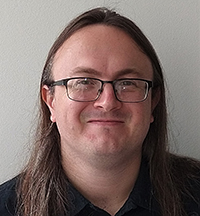
Markus Eger | Co-principal Investigator
Assistant Professor of Computer Science
California State Polytechnic University, Pomona
Dr. Markus Eger is an Assistant Professor of Computer Science at Cal Poly Pomona. He received a PhD from NC State University and an MSc. from Graz University of Technology, Austria. His research revolves around game development and AI, with a focus on how humans interact with games and related technologies, and he has published several articles on the subject. He is also constantly seeking to innovate his teaching by utilizing his research interests to develop interactive experiences for use in the classroom, including the recent design and subsequent implementation of several Virtual Reality-based games that teach core Computer Science concepts. Dr. Eger is highly active in the research community and acts as the general chair for the 2023 edition of the AAAI conference on Artificial Intelligence and Interactive Digital Entertainment (AIIDE).
LUMINATE: Leveraging Machine Learning/Artificial Intelligence for Responsive and Equitable Teaching and Engagement
The proposal aims to develop an AI-driven intervention that enhances student performance by alerting instructors to students who are at a higher risk of performing poorly or dropping out of a course. This alert system enables instructors to identify specific students who would benefit from additional attention, such as one-on-one time, extra resources, guidance, and regular check-ins. It is also applicable to advisors and support staff. The introduction of this alert system has the potential to improve graduation rates over time. By proactively identifying at-risk students and providing them with the necessary support, the proposed approach seeks to empower both instructors and students, ultimately leading to improved academic outcomes.
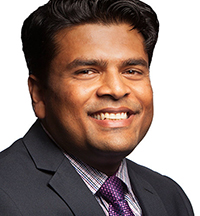
Rakesh Mahto | Principal Investigator
Associate Professor
Department of Electrical and Computer Engineering
California State University, Fullerton
Dr. Rakesh Mahto is an Associate Professor at California State University, Fullerton (CSUF), specializing in Electrical and Computer Engineering. He earned his PhD from the University of New Mexico, Albuquerque, focusing on the development of solar cell-based reconfigurable and programmable to power micro-autonomous drones. Dr. Mahto has received numerous intramural and external grants for his research work. These funding supported research projects on solar-powered Electric Vehicles (EVs), forest fire detection sensors, machine learning-driven IoT connected solar panels, as well as providing hands-on training to undergraduate students in integrated circuits and renewable energy economics. Dr. Mahto actively involves undergraduate and graduate students in his research, offering them valuable opportunities to gain practical experience and knowledge in these areas. His research interests encompass photovoltaics, FPGA design, low-power design, mixed-signal systems, hardware security, and RF electronics.
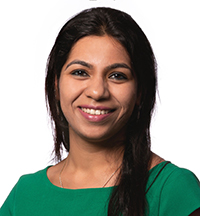
Kanika Sood | Co-principal Investigator
Assistant Professor
Department of Computer Science
California State University, Fullerton
Dr. Kanika Sood is an Assistant Professor in the Computer Science department at California State University, Fullerton. She received a doctoral and master’s degree in computer science from the University of Oregon in 2019 and 2014 respectively. Her research interests include (1) Modeling techniques for solver suggestions (2) Computer Science and STEM education to optimize available resources and enhance student engagement to highlight problem-solving practices and applications of computational thinking across disciplines. (3) Applying machine learning techniques for cancer prognosis and enhancing solar panel performance.